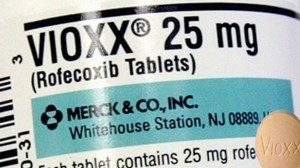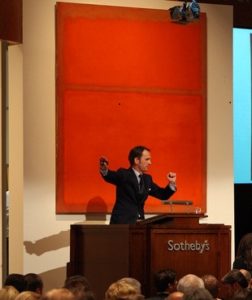 The receiver for Allen Stanford’s businesses sought to recover the proceeds of large certificates of deposit from two investment entities associated with the Libyan government. The district court dismissed one of the entities pursuant to the Foreign Sovereign Immunities Act, and allowed the claim against the other to proceed. The Fifth Circuit reversed as to that entity, finding that the instruments at issue “did not require any act in the United States, much less the act of funneling money through the Stanford scheme or any Stanford entities in the United States,” and that the entity’s “commercial activity was limited to its obligations under teh . . . CDs, which . . . did not require any activity in the United States.” Janvey v. Libyan Inv. Auth., Nos. 15-10545 & 10548 (Oct. 26, 2016).
The receiver for Allen Stanford’s businesses sought to recover the proceeds of large certificates of deposit from two investment entities associated with the Libyan government. The district court dismissed one of the entities pursuant to the Foreign Sovereign Immunities Act, and allowed the claim against the other to proceed. The Fifth Circuit reversed as to that entity, finding that the instruments at issue “did not require any act in the United States, much less the act of funneling money through the Stanford scheme or any Stanford entities in the United States,” and that the entity’s “commercial activity was limited to its obligations under teh . . . CDs, which . . . did not require any activity in the United States.” Janvey v. Libyan Inv. Auth., Nos. 15-10545 & 10548 (Oct. 26, 2016).
Monthly Archives: October 2016
 A group of optometrists won judgment against Wal-Mart for $1,395,400, consisting entirely of statutory penalties relating to Wal-Mart’s influence over their working hours. After withdrawing the initial panel opinion and then receiving answers to certified questions in Forte v. Wal-Mart Stores, Inc., No. 15-0146 (Tex. May 20, 2016), the Fifth Circuit again concluded that “the district court’s judgment regarding damages must be vacated; attorneys’ fees are the only matter that remains in the case.” Forte v. Wal-Mart Stores, Inc., No. 12-40854 (Oct. 27, 2016).
A group of optometrists won judgment against Wal-Mart for $1,395,400, consisting entirely of statutory penalties relating to Wal-Mart’s influence over their working hours. After withdrawing the initial panel opinion and then receiving answers to certified questions in Forte v. Wal-Mart Stores, Inc., No. 15-0146 (Tex. May 20, 2016), the Fifth Circuit again concluded that “the district court’s judgment regarding damages must be vacated; attorneys’ fees are the only matter that remains in the case.” Forte v. Wal-Mart Stores, Inc., No. 12-40854 (Oct. 27, 2016).
Celebrate Halloween with these Five Recent Cases to Know. And don’t forget to vote for Super Lawyers by this Friday, October 28!
 Bonnie Pereida’s estate successfully brought RICO claims against a dealer in rare coins, arguing that it systematically deceived Ms. Pereida about the quality of the coins she bought from it. The Fifth Circuit agreed with the estate that the RICO claim survived her, finding that “RICO’s remedial purpose predominates” over its penal purposes. But, it reversed as to the proof of a “pattern of racketeering activity,” finding that the relevant time period was too short and did not qualify as “open-ended.” It noted that on remand, the plaintiff could potentially still elect a remedy in common-law fraud where this problem would not arise.
Bonnie Pereida’s estate successfully brought RICO claims against a dealer in rare coins, arguing that it systematically deceived Ms. Pereida about the quality of the coins she bought from it. The Fifth Circuit agreed with the estate that the RICO claim survived her, finding that “RICO’s remedial purpose predominates” over its penal purposes. But, it reversed as to the proof of a “pattern of racketeering activity,” finding that the relevant time period was too short and did not qualify as “open-ended.” It noted that on remand, the plaintiff could potentially still elect a remedy in common-law fraud where this problem would not arise.
During that analysis, the Court offered a telling general comment: “[Plaintiff] contends that the Defendants waived this challenge to the ‘pattern’ element by raising it for the first time in their motion for a new trial. It should have been raised, he argues, in a motion for summary judgment so he would have known that this was a contested issue. The argument says a lot about modern civil litigation in which summary judgment, rather than trial, has become the focus. But when a case does go to trial, the burden is on the plaintiff to prove every element.” Malvino v. Dellniversita, No. 15-41435 (Oct. 20, 2016) (emphasis added).
 The preliminary injunction said: “Plaintiffs may contact former and current . . . employees . . . of the Debtor if and only if a written request is made by Plaintiffs’ counsel to counsel for SkyPort, and counsel for SkyPort either a) agrees to the proposed contact or b) does not respond within 1 business day,” and: “Plaintiffs are temporarily enjoined from: pursuing any and all claims or causes of action, derivative or direct, against all of the Defendants.”
The preliminary injunction said: “Plaintiffs may contact former and current . . . employees . . . of the Debtor if and only if a written request is made by Plaintiffs’ counsel to counsel for SkyPort, and counsel for SkyPort either a) agrees to the proposed contact or b) does not respond within 1 business day,” and: “Plaintiffs are temporarily enjoined from: pursuing any and all claims or causes of action, derivative or direct, against all of the Defendants.”
Nevertheless, the trial court found that Plaintiffs’ counsel and Plaintiffs’ financial advisor “continued to pursue evidence and witnesses―namely Cole [Skyport’s former president]. They encouraged Cole to pursue her own claims . . . in other courts by arranging for her counsel, providing for a “loan” for her counsel’s retainer, and pursuing financial support for the state court litigation.”
The Fifth Circuit affirmed a substantial award of sanctions, reflecting the attorneys fees incurred to rectify the situation. The Court rejected defenses based on whether (1) the award was civil or criminal in nature, (2) fees alone could be the basis of the sanction awarded, (3) the injunction no longer was in effect, (4) the alleged violations were inadvertent, and (5) the individuals sanctioned were not subject to the order. Goldman v. Bankton Fin. Corp., No. 15-2-243 (Oct. 12, 2016, unpublished).
 Apache Corporation had an insurance policy for computer fraud, which said: “We will pay for loss of, and loss from damage to, money, securities and other property resulting directly from the use of any computer to fraudulently cause a transfer of that property from inside the premises or banking premises: (a) to a person (other than a messenger) outside those premises; or (b) to a place outside those premises.” (emphasis added) The Fifth Circuit, after a “detailed — albeit numbing — analysis of the cited authorities,” concluded that the weight of the case law did not create coverage under this policy for the following events:
Apache Corporation had an insurance policy for computer fraud, which said: “We will pay for loss of, and loss from damage to, money, securities and other property resulting directly from the use of any computer to fraudulently cause a transfer of that property from inside the premises or banking premises: (a) to a person (other than a messenger) outside those premises; or (b) to a place outside those premises.” (emphasis added) The Fifth Circuit, after a “detailed — albeit numbing — analysis of the cited authorities,” concluded that the weight of the case law did not create coverage under this policy for the following events:
- Apache received a call from a vendor (actually, a criminal posing as the vendor) asking that Apache change its payments to a new bank account.
- Apache asked for a formal request on the vendor’s letterhead; one arrived about a week later by email with an attachment on letterhead (from a domain used by the criminals to further pose as the vendor);
- Apache called the number on the letterhead to verify the request, and after thinking it had confirmed the authenticity of the request, began sending payments to a new bank account.
While computer use obviously played a role in the deception, the Court noted: “To interpret the computer-fraud provision as reaching any fraudulent scheme in which an email communication was part of the process would . . . convert the computer-fraud provision to one for general fraud.” Apache Corp. v. Great Am. Ins. Co., No. 15-20499 (Oct. 18, 2016, unpublished).
 The parties in AIG Specialty Ins. Co. v. Tesoro Corp. disputed whether limitations had run on an insurance coverage claim involving the identity of the named insured (and in turn, whether that entity owned a refinery subject to difficult environmental remediation orders). As a matter of contract law, the Court agreed that mere receipt of an insurance policy does not necessarily bar a reformation claim. But under Texas limitations principles, the insured could not establish that the insurer had “specialized knowledge” about the subject of refinery ownership, or that the mistake in the policy was inherently undiscoverable — especially then “the mistake is evident from the face of the document.” No. 15-50953 (Oct. 17, 2016).
The parties in AIG Specialty Ins. Co. v. Tesoro Corp. disputed whether limitations had run on an insurance coverage claim involving the identity of the named insured (and in turn, whether that entity owned a refinery subject to difficult environmental remediation orders). As a matter of contract law, the Court agreed that mere receipt of an insurance policy does not necessarily bar a reformation claim. But under Texas limitations principles, the insured could not establish that the insurer had “specialized knowledge” about the subject of refinery ownership, or that the mistake in the policy was inherently undiscoverable — especially then “the mistake is evident from the face of the document.” No. 15-50953 (Oct. 17, 2016).
 The Romans sued Ford Motor Co. and a Houston AutoNation dealer. The dealer moved to compel arbitration; the district court denied the motion; and the dealer appealed. Unfortunately, the Fifth Circuit was “not satisfied, based on the record before it, that [the dealer] does not share citizenship with the Romans.” Reminding that the Federal Arbitration Act is not an independent basis for federal jurisdiction, the Court vacated the district court’s order and remanded for determination of subject matter jurisdiction — with instructions to dismiss if diversity was not established. Roman v. AutoNation Ford Gulf Freeway, No. 16-20047 (Oct. 13, 2016, unpublished).
The Romans sued Ford Motor Co. and a Houston AutoNation dealer. The dealer moved to compel arbitration; the district court denied the motion; and the dealer appealed. Unfortunately, the Fifth Circuit was “not satisfied, based on the record before it, that [the dealer] does not share citizenship with the Romans.” Reminding that the Federal Arbitration Act is not an independent basis for federal jurisdiction, the Court vacated the district court’s order and remanded for determination of subject matter jurisdiction — with instructions to dismiss if diversity was not established. Roman v. AutoNation Ford Gulf Freeway, No. 16-20047 (Oct. 13, 2016, unpublished).
 The plaintiff in Isner v. Seeger Weiss LLP alleged that counsel misrepresented the compensation that she would receive under a large Vioxx settlement. The defendants won; two features of the master settlement agreement were particularly important. First, it said that claimants would receive a payment under “criteria to be determined by the Claim Administrator” and “according to guidelines to be established by the Claims
The plaintiff in Isner v. Seeger Weiss LLP alleged that counsel misrepresented the compensation that she would receive under a large Vioxx settlement. The defendants won; two features of the master settlement agreement were particularly important. First, it said that claimants would receive a payment under “criteria to be determined by the Claim Administrator” and “according to guidelines to be established by the Claims
Administrator” — thus, “the method of calculation was . . . specifically reserved for
the decision of the Claims Administrator at a later date.” Second, under the heading “NO GUARANTEE OF PAYMENT,” the release said: “I FURTHER ACKNOWLEDGE THAT I UNDERSTAND THIS RELEASE AND THE AGREEMENT AND THAT THERE IS NO GUARANTEE THAT I WILL RECEIVE ANY SETTLEMENT PAYMENT OR, IF ANY SETTLEMENT PAYMENT IS MADE, THE AMOUNT THEREOF.” No. 15-31070 (Oct. 11, 2016, unpublished).
 Interlocutory appeal of discovery issues is largely foreclosed under the restrictive view of the “collateral order” doctrine adopted by Mohawk Industries v. Carpenter, 130 S. Ct. 599 (2009). Another, rarely-traveled path appears in Cazorla v. Koch Foods of Miss., in which the district court and Fifth Circuit agreed that an interlocutory appeal under 28 U.S.C. § 1292(b) of a difficult discovery issue
Interlocutory appeal of discovery issues is largely foreclosed under the restrictive view of the “collateral order” doctrine adopted by Mohawk Industries v. Carpenter, 130 S. Ct. 599 (2009). Another, rarely-traveled path appears in Cazorla v. Koch Foods of Miss., in which the district court and Fifth Circuit agreed that an interlocutory appeal under 28 U.S.C. § 1292(b) of a difficult discovery issue  involving parallel private employment litigation and immigration proceedings. The specific issue address is important but narrow; the procedural holding is notable for how unusual and important a discovery issue must be to come within the ambit of the interlocutory appeal statute. No. 15-60562 (Sept. 27, 2016).
involving parallel private employment litigation and immigration proceedings. The specific issue address is important but narrow; the procedural holding is notable for how unusual and important a discovery issue must be to come within the ambit of the interlocutory appeal statute. No. 15-60562 (Sept. 27, 2016).
 In April 2014, Burger King Europe sued on a guaranty to recover allegedly unpaid franchise fees (the “Personal Guarantee Litigation”). In September 2014, that guarantor and the franchise owners sued Burger King Europe for tortious interference and a declaratory judgment (the “Franchise Agreement Litigation”). Burger King asserted the defense of forum non conveniens, in favor of Germany, as specified in the parties’ agreement. Acknowledging some confusion about the applicable legal standard for waiver, the Fifth Circuit agreed with the district court that the filing of the Personal Guarantee Litigation did not waive Burger King’s ability to assert forum non conveniens in the later case against it. That said, the Court found an abuse of discretion in denying the plaintiffs’ leave to amend to add new defendants and new tort claims, noting that the motion was timely and not obviously moot. SGIC Strategic Global Investment Capital, Inc. v. Burger King Europe GMBH, No. 15-10943 (Oct. 10, 2016).
In April 2014, Burger King Europe sued on a guaranty to recover allegedly unpaid franchise fees (the “Personal Guarantee Litigation”). In September 2014, that guarantor and the franchise owners sued Burger King Europe for tortious interference and a declaratory judgment (the “Franchise Agreement Litigation”). Burger King asserted the defense of forum non conveniens, in favor of Germany, as specified in the parties’ agreement. Acknowledging some confusion about the applicable legal standard for waiver, the Fifth Circuit agreed with the district court that the filing of the Personal Guarantee Litigation did not waive Burger King’s ability to assert forum non conveniens in the later case against it. That said, the Court found an abuse of discretion in denying the plaintiffs’ leave to amend to add new defendants and new tort claims, noting that the motion was timely and not obviously moot. SGIC Strategic Global Investment Capital, Inc. v. Burger King Europe GMBH, No. 15-10943 (Oct. 10, 2016).
 In Monaco v. TAG Investments, the parties disputed the dischargeability of a $171,942.03 debt, based on the alleged misapplication of funds subject to Texas’s powerful Construction Trust Fund Act. The Fifth Circuit focused on a defense provided by that statute, which applies when “the trust funds not paid to the beneficiaries of the trust were used by the trustee to pay the trustee’s actual expenses directly related to the construction or repair of the improvement.” The Court accepted the explanation that “$124,053 went to salaries and overhead and an additional $50,400.00 went to superivision of this project,” noting that “payment of these sums as reasonable was approved by TAG’s architect.” Accordingly, the defense applied and the debt was dischargeable. No. 15-51085 (Oct. 6, 2016).
In Monaco v. TAG Investments, the parties disputed the dischargeability of a $171,942.03 debt, based on the alleged misapplication of funds subject to Texas’s powerful Construction Trust Fund Act. The Fifth Circuit focused on a defense provided by that statute, which applies when “the trust funds not paid to the beneficiaries of the trust were used by the trustee to pay the trustee’s actual expenses directly related to the construction or repair of the improvement.” The Court accepted the explanation that “$124,053 went to salaries and overhead and an additional $50,400.00 went to superivision of this project,” noting that “payment of these sums as reasonable was approved by TAG’s architect.” Accordingly, the defense applied and the debt was dischargeable. No. 15-51085 (Oct. 6, 2016).
 The plaintiffs in Sims v. Kia Motors brought products liability claims about the design of a fuel tank. Their main engineering expert “employed a ‘differential diagnosis approach, a scientific technique that essentially involves the process of elimination.” While a potentially reliable technique, the Fifth Circuit noted that it “has cautioned that “the results of a differential diagnosis are far from reliable per se..’ . . . “[M]erely “ruling out” other possible explanations is not enough to establish reliability; experts must also have some scientific basis for ‘ruling in’ the phenomenon they allege.” Here, where “the record does not reflect any reliable facts or data ‘ruling in'” the expert’s theory about how the fuel tank behaved in the accident, “the district court did not abuse its discretion in excluding it.” No. 15-10636 (revised Oct. 11, 2016).
The plaintiffs in Sims v. Kia Motors brought products liability claims about the design of a fuel tank. Their main engineering expert “employed a ‘differential diagnosis approach, a scientific technique that essentially involves the process of elimination.” While a potentially reliable technique, the Fifth Circuit noted that it “has cautioned that “the results of a differential diagnosis are far from reliable per se..’ . . . “[M]erely “ruling out” other possible explanations is not enough to establish reliability; experts must also have some scientific basis for ‘ruling in’ the phenomenon they allege.” Here, where “the record does not reflect any reliable facts or data ‘ruling in'” the expert’s theory about how the fuel tank behaved in the accident, “the district court did not abuse its discretion in excluding it.” No. 15-10636 (revised Oct. 11, 2016).
 Hoffman v. L&M Arts arose from the sale of a 1961 Rothko painting (right) by Sotheby’s in 2010; a previous owner alleged that this sale revealed facts about her own sale, in violation of a confidentiality provision in the sales contract that said: “All parties agree to make maximum efforts to keep all aspects of this transaction confidential indefinitely.” The Fifth Circuit ruled for the defense in all respects, concluding that:
Hoffman v. L&M Arts arose from the sale of a 1961 Rothko painting (right) by Sotheby’s in 2010; a previous owner alleged that this sale revealed facts about her own sale, in violation of a confidentiality provision in the sales contract that said: “All parties agree to make maximum efforts to keep all aspects of this transaction confidential indefinitely.” The Fifth Circuit ruled for the defense in all respects, concluding that:
- The original owner did not state a fraud claim against the relevant gallery, based on its alleged misrepresentation of its authority to act on behalf of an unnamed buyer, or its alleged misrepresentation about representing an entity or individual. (Notably, the owner did not argue in the district court that equitable relief could still be appropriate without proof of damage), or its claim that the piece would “disappear” into its client’s private collection.
- The contract did not require secrecy about the fact of the sale, based on the plain meaning of the term “aspect,” other provisions in the agreement, and the Texas policy against restraints on alienability.
- The questions about damages associated with the alleged breach either reflected speculative bargains, incorrect damages measures, or a disgorgement theory that is not well-supported as a Texas contract remedy.
No. 15-10046 (Sept. 28, 2016).
 In Torres v. S.G.E. Management LLC, the en banc Fifth Circuit reversed a panel opinion about a class action involving an alleged pyramid scheme. The case alleged RICO claims about the multi-level marketing program associated with Stream Energy; the panel rejected class certification, finding that individual causation issues would predominate at trial.
In Torres v. S.G.E. Management LLC, the en banc Fifth Circuit reversed a panel opinion about a class action involving an alleged pyramid scheme. The case alleged RICO claims about the multi-level marketing program associated with Stream Energy; the panel rejected class certification, finding that individual causation issues would predominate at trial.
The en banc court disagreed, reasoning: “The Defendants’ challenge to predominance rests on their belief that th[e] causation element will require individualized proof. But that premise . . . is at odds with recent decisions from the Supreme Court and this court emphasizing that RICO claims predicated on mail and wire fraud do not require first-party reliance to establish that the injuries were proximately caused by the fraud.” Accordingly, “[b]ecause pyramid schemes are per se mail fraud, which include inherent concealment about the deceptive payment scheme, one who participates in a pyramid scheme can be harmed ‘by reason of’ the fraud regardless of whether he or she relied on a misrepresentation about the scheme.” Additionally, the Court concluded that “if the Plaintiffs prove that Ignite is a fraudulent pyramid scheme, they may use a common inference of reliance to prove proximate causation under RICO.”
This is a significant ruling from a court that is generally considered hostile to class actions, in an area of the economy – multi-level marketing programs – that involves millions of participants. No. 14-20129 (Sept. 30, 2016) (en banc).